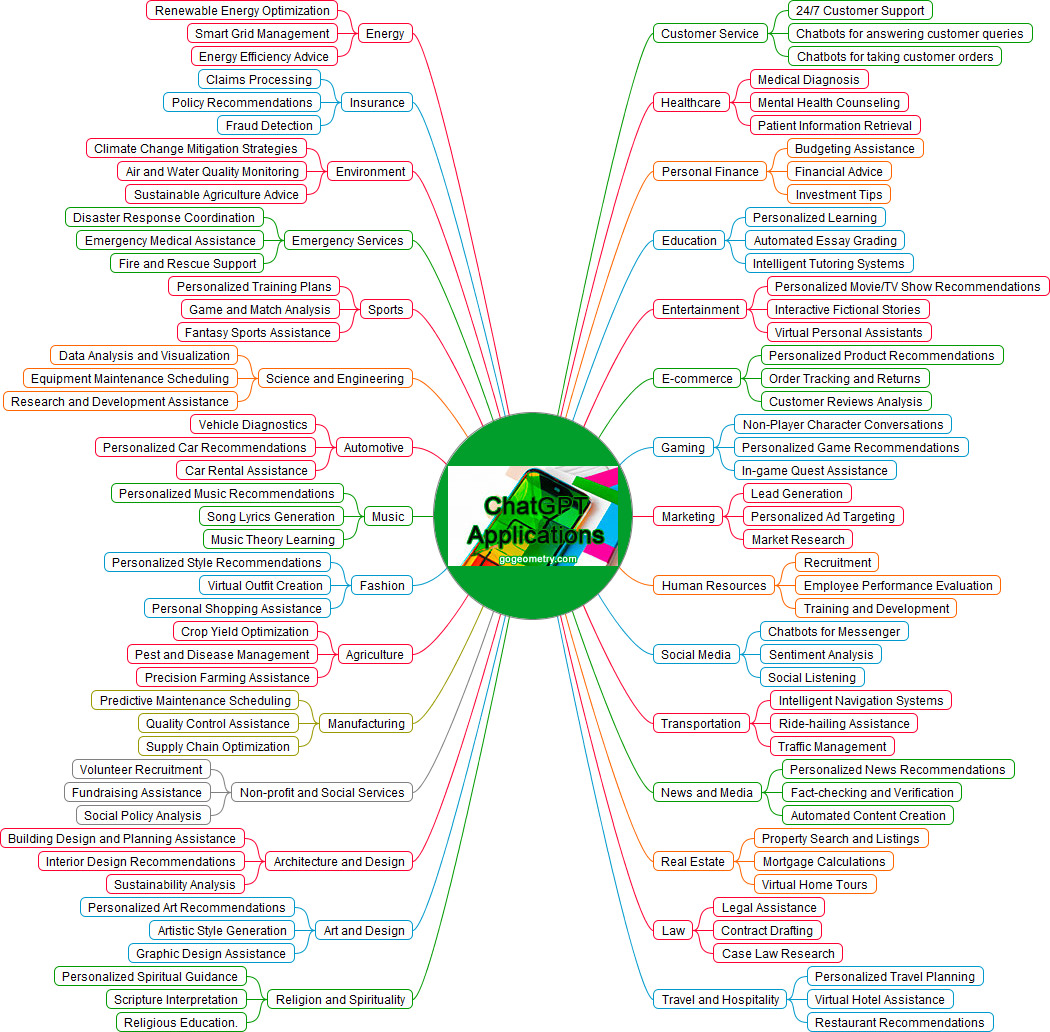FTC Probe Into OpenAI: A Deep Dive Into The ChatGPT Investigation

Table of Contents
The Nature of the FTC's Investigation into OpenAI and ChatGPT
The FTC, tasked with protecting consumers and preventing anti-competitive business practices, has launched this investigation based on concerns regarding OpenAI's handling of user data and the potential for harm caused by ChatGPT's outputs. The investigation focuses on potential violations related to data privacy, the spread of misinformation, and potentially deceptive trade practices.
Data Privacy Concerns
ChatGPT, like other large language models (LLMs), collects vast amounts of user data to function effectively. This data is used to train the model, improve its performance, and personalize user experiences. However, the collection, use, and storage of this data raise significant privacy concerns.
-
Data Collection: ChatGPT collects user inputs, including conversations, prompts, and generated responses. This data can potentially reveal sensitive personal information.
-
Data Usage: OpenAI uses this data to train and improve its models, raising questions about informed consent and data minimization.
-
Data Storage: The security and longevity of data storage practices are also under scrutiny.
-
Potential Violations: The collection and use of this data may violate existing data privacy laws like the California Consumer Privacy Act (CCPA) and the General Data Protection Regulation (GDPR), depending on the specific circumstances and location of users.
-
Bias and Discrimination: Concerns exist that the data used to train ChatGPT may reflect and perpetuate existing societal biases, leading to discriminatory or unfair outputs.
-
Specific Data Privacy Risks Associated with ChatGPT:
- Unintended disclosure of sensitive personal information through prompts and responses.
- Lack of transparency regarding data usage and storage practices.
- Potential for data breaches leading to unauthorized access of user data.
Misinformation and Harmful Content
ChatGPT's ability to generate human-quality text also presents a significant challenge: the potential for generating false or misleading information. The ease with which the model can create convincing but inaccurate content raises concerns about the spread of misinformation and its potential societal harm.
-
Generating False Information: ChatGPT can convincingly fabricate information, making it difficult to distinguish fact from fiction.
-
Mitigating Misinformation: OpenAI faces the challenge of developing effective mechanisms to detect and prevent the generation of misleading content. This is a complex technical and ethical issue.
-
Potential Harm: The spread of misinformation generated by AI models can have severe consequences, impacting public health, political discourse, and individual decision-making.
-
Examples of Potential Harm Caused by Misinformation from AI Models:
- Spread of medical misinformation leading to health risks.
- Dissemination of fake news influencing political opinions.
- Creation of convincing fraudulent content leading to financial losses.
Unfair or Deceptive Trade Practices
The FTC might also investigate whether OpenAI's marketing and promotion of ChatGPT were misleading or deceptive. This includes assessing whether users are adequately informed about the limitations and potential risks of using the technology.
-
Exaggerated Claims: Marketing materials might have overstated ChatGPT's capabilities or downplayed its limitations.
-
Lack of Transparency: Users may not be fully aware of the potential risks associated with using ChatGPT, such as generating inaccurate information or revealing personal data.
-
Unrealistic Expectations: The marketing could have created unrealistic expectations about ChatGPT's accuracy and reliability.
-
Potential Deceptive Marketing Practices:
- Overpromising the accuracy and reliability of ChatGPT's outputs.
- Failing to disclose the potential for bias or discrimination in the model's responses.
- Minimizing the risks associated with data privacy and security.
Potential Consequences of the FTC Investigation
The FTC investigation could have significant consequences for OpenAI. If found in violation of FTC regulations, OpenAI could face substantial penalties.
- Fines: Significant financial penalties could be levied for violating consumer protection laws and data privacy regulations.
- Restrictions: The FTC might impose restrictions on OpenAI's data collection practices, marketing strategies, or the deployment of ChatGPT.
- Operational Changes: OpenAI may be required to implement significant changes to its operations, including enhancing data security measures and improving transparency.
- Increased Regulatory Scrutiny: This investigation could set a precedent for increased regulatory scrutiny of the AI industry as a whole, leading to stricter regulations for other companies developing and deploying similar AI technologies.
- Impact on Future Development: The investigation could significantly impact OpenAI's future development and deployment of AI models, potentially slowing innovation or shifting priorities.
The Broader Implications for the AI Industry
The FTC's investigation into OpenAI sets a critical precedent for the future regulation of AI. Its outcome will have a profound impact on the development and deployment of similar technologies by other companies.
-
Setting a Precedent: This investigation is a landmark case that will shape how the FTC and other regulatory bodies approach the oversight of AI.
-
Impact on Other Companies: The results of the investigation will likely influence the practices of other companies developing and deploying AI models, encouraging more responsible AI development.
-
Ethical Considerations: The investigation highlights the urgent need for ethical considerations in AI development, emphasizing the importance of data privacy, transparency, and accountability.
-
Need for Responsible AI Development: The investigation underscores the critical need for a broader conversation about responsible AI development, encompassing ethical guidelines, technical safeguards, and regulatory frameworks.
-
Implications for the Future Development and Regulation of AI:
- Increased focus on data privacy and security in AI systems.
- Development of stricter guidelines for mitigating misinformation and harmful content.
- Establishment of clear standards for transparency and accountability in AI development.
Conclusion
The FTC's investigation into OpenAI and ChatGPT reveals critical challenges related to data privacy, misinformation, and the responsible development of AI. The potential consequences for OpenAI and the broader AI industry are significant, highlighting the urgent need for robust regulation in this rapidly evolving field. The investigation's outcome will shape the future of AI development and deployment, emphasizing the importance of ethical considerations and the need for responsible innovation. Staying informed about the ongoing FTC probe into OpenAI and its implications for the future of ChatGPT and AI development is crucial. Continue to follow developments in the FTC investigation into OpenAI and the broader discussion surrounding responsible AI development.

Featured Posts
-
 Espn Crews Heartfelt Farewell To Cassidy Hubbarth
Apr 28, 2025
Espn Crews Heartfelt Farewell To Cassidy Hubbarth
Apr 28, 2025 -
 Fealyat Fn Abwzby Tbda 19 Nwfmbr
Apr 28, 2025
Fealyat Fn Abwzby Tbda 19 Nwfmbr
Apr 28, 2025 -
 Austin Teens Find Inspiration In Bubba Wallace Ahead Of Cota
Apr 28, 2025
Austin Teens Find Inspiration In Bubba Wallace Ahead Of Cota
Apr 28, 2025 -
 Leaders From Around The Globe Honor Pope Francis
Apr 28, 2025
Leaders From Around The Globe Honor Pope Francis
Apr 28, 2025 -
 Longer Lasting Power Exploring Kuxius Solid State Power Bank Technology
Apr 28, 2025
Longer Lasting Power Exploring Kuxius Solid State Power Bank Technology
Apr 28, 2025
